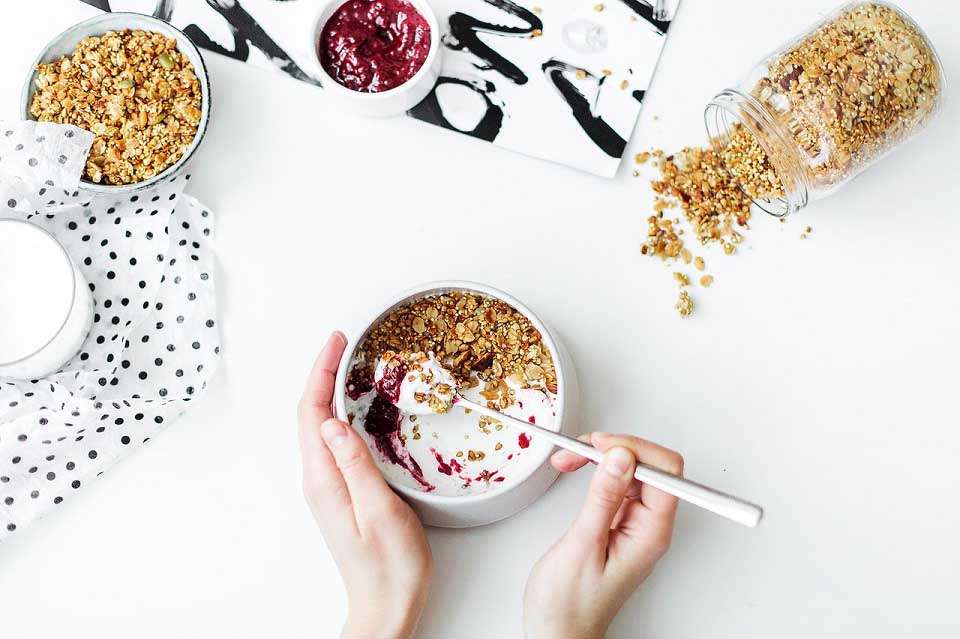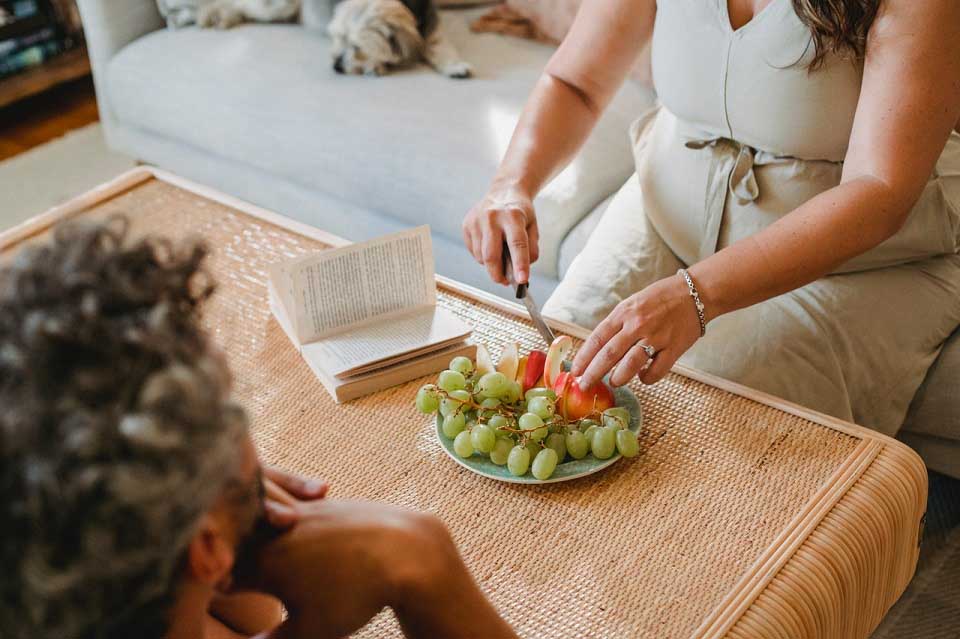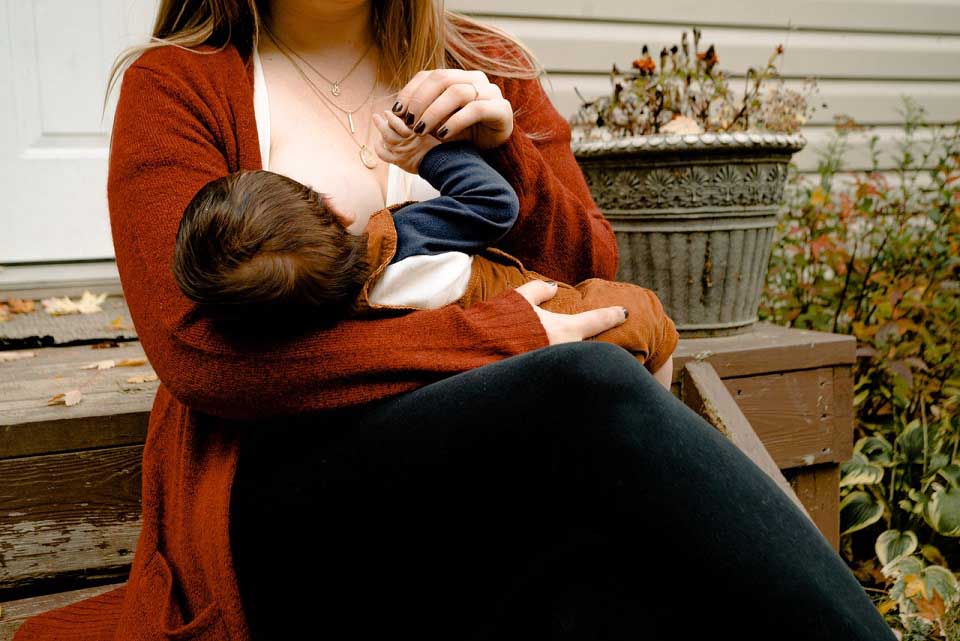Pregnancy: Can you eat to prevent your baby getting eczema?

When you are pregnant, you become very aware very quickly that you should be on a special diet. Being pregnant means no alcohol, low caffeine, and watching out for things like listeria and toxoplasmosis. It means increasing iron, folate, calcium and almost all other vitamins. But did you know that you can also eat to prevent your baby’s chances of getting eczema?
As a pregnant mum, you might worry about your baby being born early or underweight or having birth defects or other health concerns. You might wonder how you are going to deal with your little ones learning disabilities or behavioural or developmental problems. You worry about every little part of them growing and developing right and then working properly when your precious baby comes out. But you might not be thinking about infant eczema.
Why don’t you want your baby getting eczema?

I don’t want to give you more things to worry about, but studies show that with up to 20% of infants suffering from it, baby eczema is more predominant than any other affliction they could have. This number may have doubled over the last fifty years and can be considerably affected by our lifestyle, nutrition and hygiene. And while of course, it isn’t life-threatening, it can be heartbreaking to watch them go through, and exhausting to deal with as a parent.
Eczema flares are hot, extremely itchy and uncomfortable. They can become painful, bleeding or even infected when the skin becomes so dry that it cracks. For older children and adult sufferers, the visible nature of eczema can also make them feel socially vulnerable and insecure. Families dealing with this condition can experience stress trying to figure out triggers, diets, environmental irritants and easy ways to treat it. Eczema can be a chronic condition that has a lasting and upsetting effect on everyday life.
If you have a family history of eczema, asthma or hay fever, then there is a chance your babies will have eczema. Eczema, or atopic dermatitis, is considered to be caused by an immune system dysfunction that affects your baby’s skin barrier and its ability to hold in moisture. Research is still new about whether you can adjust your diet while pregnant and either cause or reduce eczema in your baby, but certain things may help.
Probiotics: What and Why?
There is some evidence that taking a probiotic supplement or boosting the foods you eat that contain live culture during pregnancy may reduce the chance of your child developing eczema. The results of a recently published study found probiotics reduced the risk of infant eczema by a significant amount. In this study, pregnant mothers who took probiotics during their third trimester reduced their baby’s risk of eczema by 29%.
Breastfeeding mothers that took probiotics reduced their baby’s risk of eczema by 40%. When the little bubs were given probiotics directly, their risk of developing eczema was reduced by 20%. Having poor gut health may affect your baby’s developing immune system, and how your baby’s growing skin has the ability to heal and moisturise itself. You may be able to eat to improve your baby’s gut health, and this is where probiotics may come in. Probiotics are live cultures or good bacteria and yeast, found in yoghurt and fermented foods, that are prepared by bacterial fermentation. They are live microorganisms that have marvelous health benefits when consumed. Probiotics help to restore the proper balance of good bacteria.
When we have a good balance of bacteria we reduce the risk of overall inflammation and sensitivities which reduces our risk of eczema. The recent research with eczema and probiotics provides a lot of hope for growing families with a history of eczema. Probiotics are inexpensive and have little to no risks, so are very easy to implement.
List of Probiotic Foods

1. Yoghurt
The number one source of probiotics through food is good old yoghurt. It’s made from milk that has been fermented by friendly bacteria, such as lactic acid bacteria and bifidobacteria. It has a wide range of health benefits including strengthening bones and teeth, lowering blood pressure, and fighting the bugs that are dragging you (or your baby’s development) down. Not all yoghurt contains live probiotics, and some also contain heaps of sugar, so read the labels before you buy. Choose yoghurt with active or live cultures.
2. Kefir
Actually, a higher source of probiotics than yoghurt, but not common in a Western diet is kefir. The name for this fermented milk drink comes from the Turkish word for ‘feeling good’, which is a pretty positive indication of its health benefits. It is made by adding cultures of lactic acid bacteria and yeast to cow’s or goat’s milk.
3. Sauerkraut
Often seen as a side to roast meat, or lovely on top of a sausage, sauerkraut is finely shredded cabbage that has been fermented by lactic acid bacteria. As well as its probiotic qualities, this dish is rich in fibre, iron and manganese, and vitamins C, B and K. Make sure that when you are buying to look for unpasteurised sauerkraut.
4. Tempeh
Tempeh is a fermented soybean product, like a little firm patty, which has a nutty or earthy flavour, sort of like mushrooms.
5. Kimchi
Kimchi is a spicy Korean side dish, usually made from fermented cabbage, which can be flavoured with red chilli flakes, garlic, ginger and salt. It contains lactic acid bacteria, which may benefit digestive health.
6. Miso
Miso is a Japanese seasoning, which is becoming increasingly popular in modern restaurants and with home cooks. It is traditionally made by fermenting soybeans with salt and a type of fungus called koji. Miso can also be made by mixing soybeans with other ingredients, like barley, rice and rye. This paste is most often used in miso soup and is nutrient-rich, with studies showing it may reduce the likelihood of stroke or breast cancer in women.
7. Cheese
Certain cheeses are good, including cheddar, mozzarella, gouda and cottage cheese. In these cheeses, the good bacteria survive the ageing process, and therefore the finished product still contains live and active cultures.
8. Pickles
Pickled cucumber or gherkins are another source of probiotics, but you need to make sure you are not buying those made in vinegar, but those stored with just salted water.
Eating to avoid allergies in your baby

There is some limited evidence that you can also follow a certain diet while pregnant to try to reduce the chances of your baby suffering from allergies when she is born. You may be able to reduce the chances of your baby suffering from intolerances to nuts, gluten, eggs or dairy for instance. Again, the evidence is still really in its infancy (pun intended), so you are not guaranteed to prevent your baby from developing allergies.
Unfortunately, it will still sometimes just happen. However, studies are showing it is better to not avoid those foods that are commonly considered allergens (unless you yourself are allergic to them). For example, avoiding peanuts when you are pregnant will not prevent your baby from developing a nut allergy, but eating peanuts while pregnant may actually help by exposing him in the womb to the properties.
Can you help to prevent infant eczema once your baby is born?
If your baby has eczema there may be food choices you can make to reduce the chances of a flare-up. Your baby may be sensitive to certain proteins, such as cow’s milk, goat’s milk or soy, so if they are formula fed you could try different brands and see if this makes a difference. If you are breastfeeding there may be things you are eating that seem to make their eczema worse (with one of my children it was eggs), so pay attention to what you have eaten when flare-ups occur and try food elimination to see if this helps.
Removing irritants and allergens in your home and around your baby as much as possible will definitely help. Don’t use soap or scented products on your baby’s skin or to wash their clothes or bedding. Keep wool, pet hair, dust and grass away from your bub as much as you can.
Breastfeeding

Trying to exclusively breastfeed for the first four to six months may reduce your baby’s chances of suffering from eczema. Exclusively breastfeeding is by no means an assured way to stop eczema, however, the evidence about the cause and effect of all this is still in the early stages. Formula feeding does not cause eczema. But exclusively breastfeeding can lower the number of allergens that your baby is exposed to.



